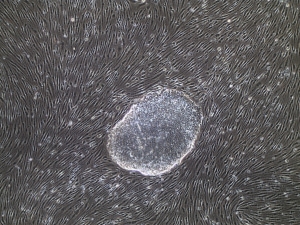In translational research, ABDL scientists generate new and effective treatments by tapping into their fundamental understanding of neuropsychiatric disease origins. They used pro-angiogenic compounds to restore neurovascular interactions in the prenatal brain to successfully prevent the acquisition of postnatal behavioral symptoms. They also generated human forebrain-like endothelial cells using pluripotent stem cell technology, extensively characterized their molecular, cellular, and functional properties, and demonstrated their effectiveness in brain repair. Co-culture of human embryonic forebrain endothelial cells with human interneurons led to faster migration and wider distribution of grafted interneurons in vivo, compared to neuron-only transplants. Furthermore, their co-transplantation strategy was able to rescue abnormal behavioral symptoms in a pre-clinical psychiatric disease model, within one month after transplantation.
While the field of induced pluripotent stem cell (iPS)-based psychiatric research is still developing, it has the potential to shed light on the “black box” of human prenatal brain development. The ABDL team can apply knowledge from the control of human embryonic forebrain-like endothelial cells to study intrinsic defects in endothelial cells from patient-derived iPSs of any psychiatric disorder. They expect to identify novel endothelial-associated cellular and molecular phenomena that underlie disease pathogenesis, opening new avenues for diagnosis and treatment, revolutionizing translational neuroscience and psychiatry.

